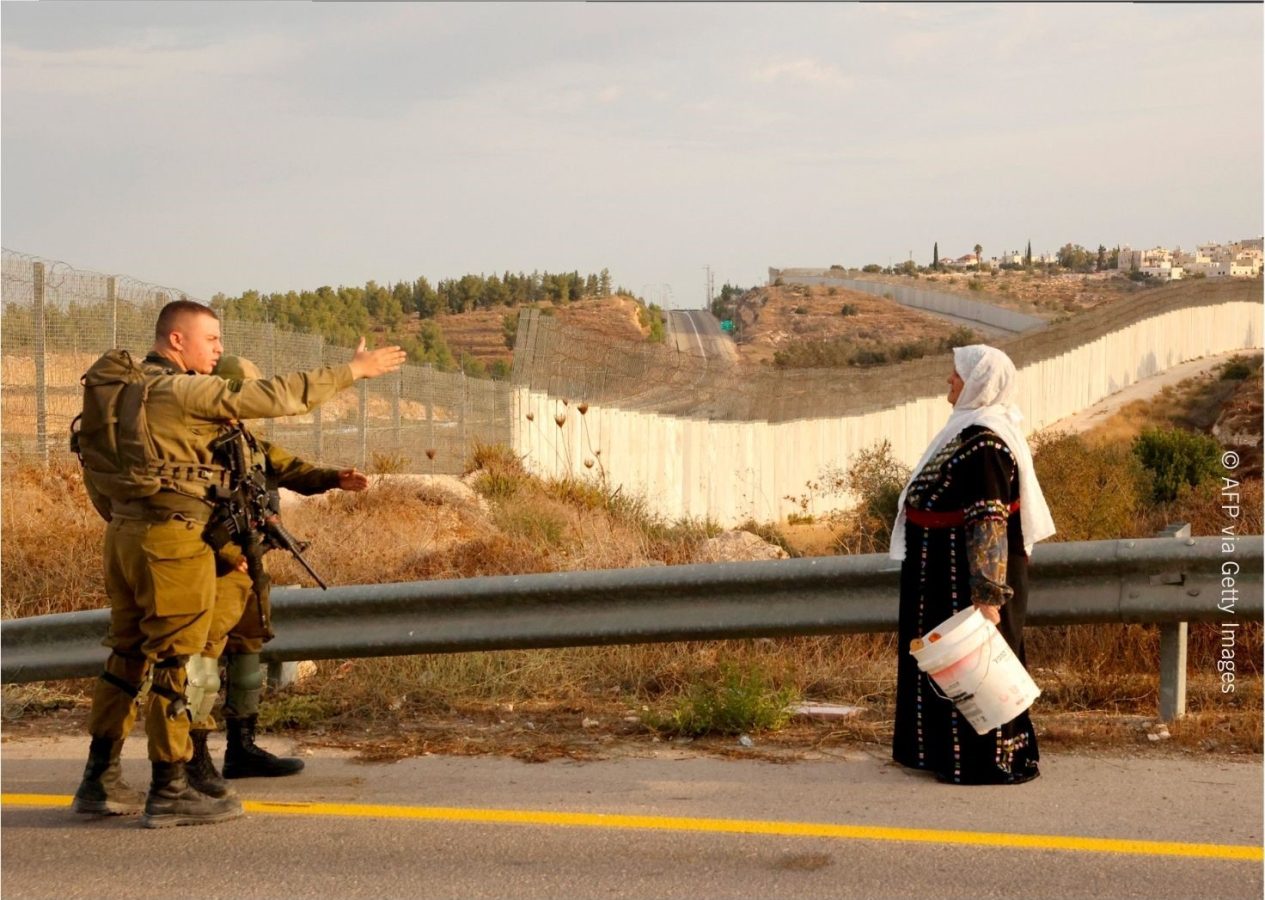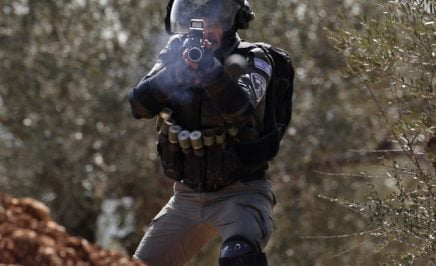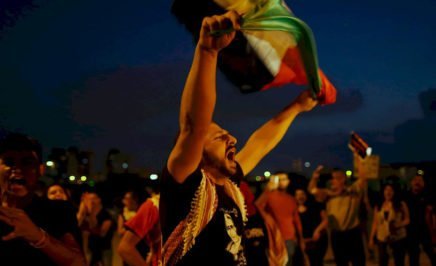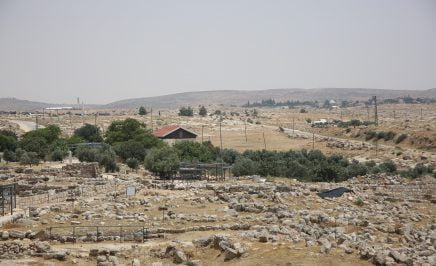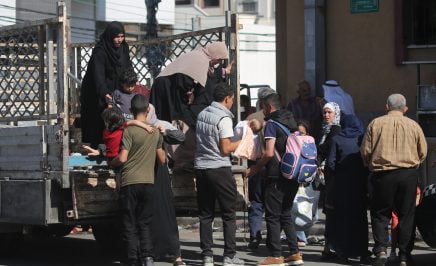An alarming spike in violence by Israeli settlers against Palestinians across the occupied West Bank in recent days highlights the urgent need to dismantle illegal settlements, end Israel’s occupation of the Occupied Palestinian Territories (OPT) and its longstanding system of apartheid, said Amnesty International.
Between 12 and 16 April hundreds of Israeli settlers went on a deadly rampage launching violent raids on Palestinian villages in the West Bank including in al-Mughayyir, Duma, Deir Dibwan, Beitin and Aqraba. In these attacks, in which settlers set fire to homes, trees and vehicles, at least four Palestinians were killed by either settlers or Israeli forces, including 17-year-old boy Omar Hamed near Ramallah, and two men shot dead near Nablus– Abdulrahman Bani Fadel and Mohammed Bani Jami’. In the latest violence, a Palestinian paramedic was shot dead in the village of al-Sawiya south of Nablus on 20 April.
Videos verified by Amnesty International’s Crisis Evidence Lab show Israeli forces were present and failed to intervene during attacks by settlers in Deir Dibwan, east of Ramallah. Witness testimonies gathered by the organization also indicate members of the Israeli military either joined in the attacks or stood by, failing to prevent the violence in Aqraba, southeast of Nablus and Kufr Malik, northeast of Ramallah.
“The appalling spike in settler violence against Palestinians in recent days is part of a decades long state-backed campaign to dispossess, displace and oppress Palestinians in the occupied West Bank, including East Jerusalem, under Israel’s system of apartheid. Israeli forces have a track record of enabling settler violence and it is outrageous that once again Israeli forces stood by and in some cases took part in these brutal attacks.”
Heba Morayef, Regional Director for the Middle East and North Africa at Amnesty International
“Establishing Israeli settlements in the Occupied Palestinian Territories flagrantly violates international law and constitutes a war crime. Violence is integral to the establishment and expansion of these settlements and to sustaining apartheid. It’s time for the world to recognise this and pressure Israeli authorities to abide by international law by immediately halting settlement expansion and removing all existing settlements.”
Over the past six months settler violence has drastically increased, but the most recent spike in attacks came after a 14-year-old Israeli boy, Binyamin Ahimeir, from the illegal settlement outpost of Mal’achei Hashalom northeast of Ramallah, went missing on 12 April and was found dead the next day.
State-backed settler violence
Incidents caught on camera at Deir Dibwan on 13 April and verified by Amnesty International show Israeli soldiers standing by as Israeli settlers vandalize Palestinian property. CCTV footage from the Israeli NGO Yesh Din shows two individuals entering a garage and setting a car on fire, while two Israeli soldiers stand by. Soldiers also stand by and watch as Israeli settlers set up a roadblock blocking the main road leading to the village. Another video shows Palestinian civilians throwing rocks at the military and sounds of likely gunshots are heard.
In a separate incident two young men, Abd Al-Rahman Bani Fadel and Mohammed Bani Jami’, were killed in the village of Khirbet Twayyil, near Aqraba, South of Nablus, after settlers opened fire on them according to the Mayor of Aqraba, Salah Bani Jaber. In a statement posted on social media Israeli forces said that a preliminary investigation indicated their forces were not responsible for the killings. Verified video footage confirms the Israeli military were at the scene during the incident and shows groups of Palestinians running away as the sound of likely gunshots is heard.
The mayor told Amnesty International he saw members of the Israeli army standing by during the attack:
“Not only was the army there and did nothing – today we shouldn’t say that the settlers attack under the protection of the army, but that the army is under the protection of the settlers.”
He added that relationship between the Israeli government military and settlers are “complementary” and that the Israeli authorities continue with systematic practices such as land confiscation, home demolitions and barring access to farming lands.
Muntaser Al-Maliki, a resident of Kufr Malik, another of the villages attacked, said he saw Israelis in army uniforms taking part in the attacks on 14 April. He told Amnesty International:
“What is happening right now is [the] erasure of humans, trees and stones, and anything that is Palestinian, by settlers under the support of the military. These attacks are systematic and under the support and protection of the army. There were also settlers in army uniforms among the attackers. The situation frankly is disastrous…The solution is to uproot and dismantle all the settlements.”
Muntaser Al-Maliki, a resident of Kufr Malik
Footage provided by a local resident from Kufr Malik and verified by Amnesty International shows soldiers kicking and then arresting a civilian who is kneeling on the ground. The soldiers are accompanied by a man who appears to be an Israeli settler.
According to media reports 25 people were wounded by live ammunition and houses and vehicles were set on fire during an attack by settlers on al-Mughayyir, near the illegal outpost Mal’achei Hashalom. One man, Jihad Afif Sedqui Abu Aliah, was killed in the confrontations.
Footage published on social media on 12 April, verified by Amnesty International shows Israeli settlers surrounding a property in the village and confronting Palestinians hiding on its rooftop.
Settler attacks on Palestinians in the West Bank, including East Jerusalem, were already systematic but have increased since the 7 October attack. According to B’Tselem, settler violence has already displaced nearly 20 communities since then.
Many of the villages attacked in recent days including al-Mughayyir, Kufr Malik and Khirbet Abu Falah are locations hosting recently displaced Palestinian-Bedouin communities, who were forced out from their communities northeast of Ramallah by settler violence.
A Palestinian woman displaced from Al-Mu’arrajat described to Amnesty International how such attacks have intensified over the past five years.
“This violence is not new to us. We suffered their [settlers] attacks in Al-Mu’arrajat since 2018, and it scarily intensified since 7 October…Every place we move to, they come and displace us again. People come visit and tell us to stay steadfast, but how can we stay steadfast when our lives and livelihood and the lives of our children are in danger?… This is a systematic policy that allows the settlers to attack residents and burn everything down, and no one is doing anything to stop it.”
In February the US government in February imposed sanctions on four violent Israeli settlers accused of involvement in attacks in the West Bank. The UK and France followed suit. A further round of sanctions was issued by the Biden administration on 19 April.
“The latest attacks are a stark reminder that imposing sanctions on individual violent settlers fails to address the root causes of the violence including relentless settlement expansion and Israel’s occupation and system of apartheid ,” said Heba Morayef.
“The failure to address these root causes and to hold Israel accountable for its violations of international law is enabling the continued dispossession and oppression of Palestinians.”
